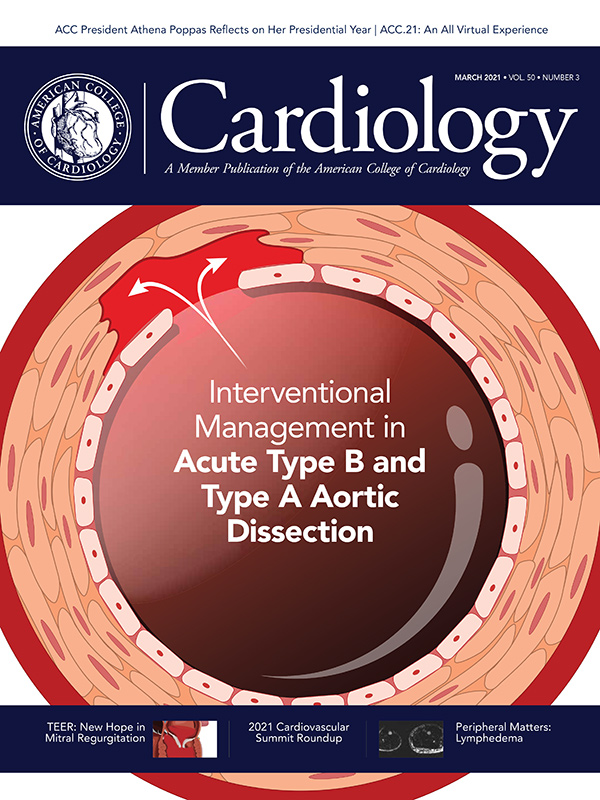Feature | Virtual Education: We’ll Take You There
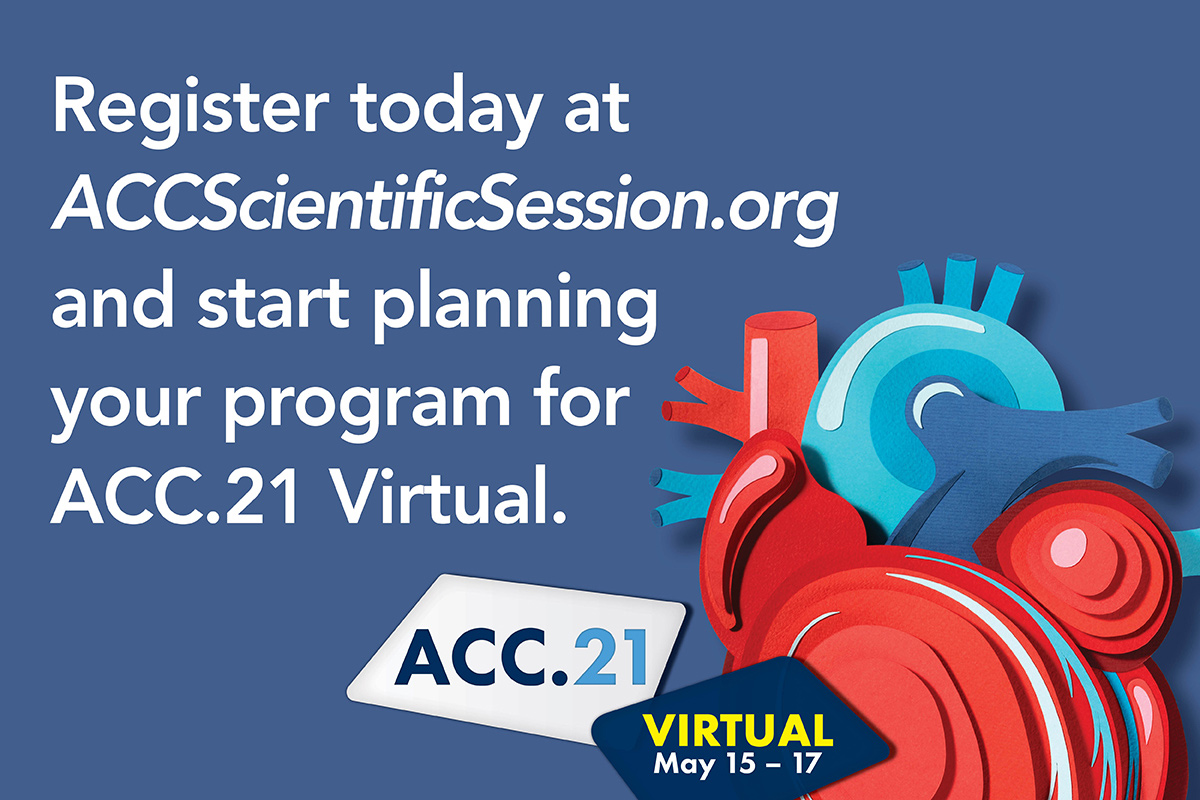
No matter the challenges of the past year, one thing has remained constant: clinicians continue to prioritize science and education and flock to virtual formats in record numbers. Case in point: a 7-fold increase in the number of participants from across the globe who participated in the Care of the Athletic Heart Virtual course in June 2020.
"Virtual education can be a powerful tool, taking the education to more of the learners who are interested in the topic, and to those who cannot attend in person because of time, budget restrictions or geography," says Jonathan H. Kim, MD, MSc, FACC, director of the Care of the Athletic Heart course. In fact, he notes that since 2019 the course has had an online component that has allowed learners to participate in the course from a distance, expanding its reach beyond the boundaries of the in-person meeting space.
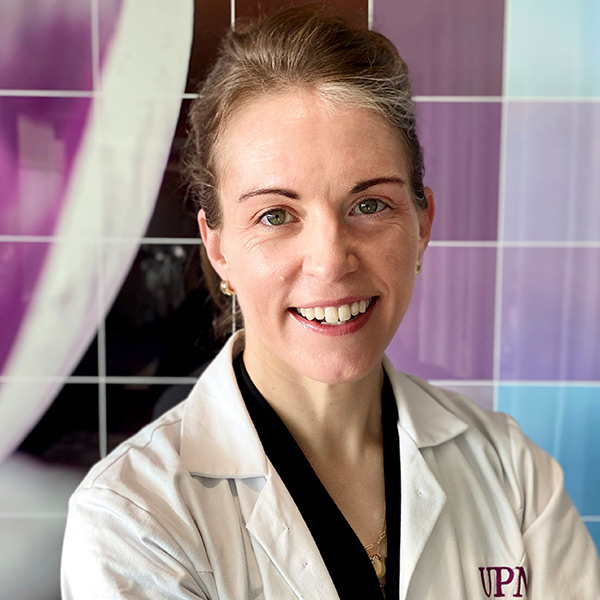
While the COVID-19 pandemic precipitated an abrupt shift in educational meetings to an entirely virtual format, with ACC.20/WCC being the first large-scale scientific meeting to make this pivot in March 2020, digital education and its capacity for learner-centered education isn't a new concept. Think podcasts such as ACCEL, Eagle's Eye View and Practice Made Perfect, webinars, and ACC's SAP products – all of which are examples of education provided through digital formats. The ACC had started exploring virtual scientific meetings to enable remote real-time participation as well as on-demand, longer-term access several years ago with the aim of fostering continuous learning throughout the year, potentially even at the point-of-care.
"Clinicians have embraced telemedicine, and likewise they have embraced virtual education," says Katie Berlacher, MD, FACC, chair of ACC's Lifelong Learning Committee.
When ACC.20/WCC was required to transition to an entirely virtual format in only two weeks, the meeting's "architects" – the planning committee and professional education staff – primarily focused on strategies to keep the learner at the center of the education and science, and to elevate the concept of networking on a virtual platform. More than 40,000 clinicians and health care workers from 135 countries participated in the science and education – and connected via live chats and social media – over the course of the three-day meeting; and more than 20,000 individuals accessed the content on demand over subsequent months.
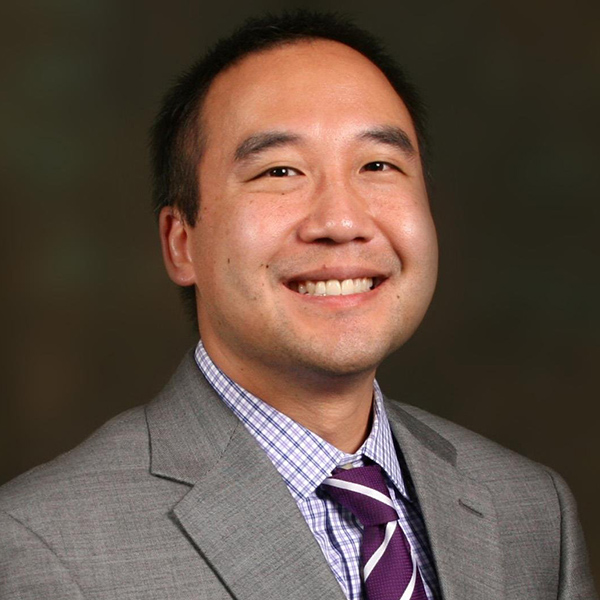
Over the past year, the ACC has built on the experience of ACC.20/WCC through other virtual meetings: honing chat features, creating virtual networking and online wellness opportunities, and finding innovative new ways for attendees to interact with the latest innovations and technologies via virtual Expo experiences. Examples range from a virtual "Fireside Chat" with Advancing the Cardiovascular Care of the Oncology Patient course directors Bonnie Ky, MD, FACC, and Ana Barac, MD, PhD, FACC, to a wellness break at the Cardiovascular Summit led by Berlacher from the seat of her Peloton bike, to weekly interactive education sessions dedicated to sharing best clinical practices during the pandemic in the Summer COVID-19 Education Series.
The success of the Care of the Athletic Heart course last June also underscores the continued improvements in the delivery of virtual education. "The interactive panel discussions gave the participants important insights from the experts to key questions involving athletic EKG interpretation and also the impact of COVID-19 on the athletic heart," says Kim. This interaction is particularly important in this nascent, growing field with a limited evidence base that makes expert opinion and consensus even more important in decision-making. "The interactive panel discussions worked well because we worked closely with the panelists beforehand to plan the goals of the session and how we'd meet the learning objectives," he adds.
What's next? "Live will never go away," says Joyce Donnellan, ACC vice president of Education, "but virtual learning adds a geographic reach to people who would not be able to attend a live meeting and provides for true 'continuing' education."
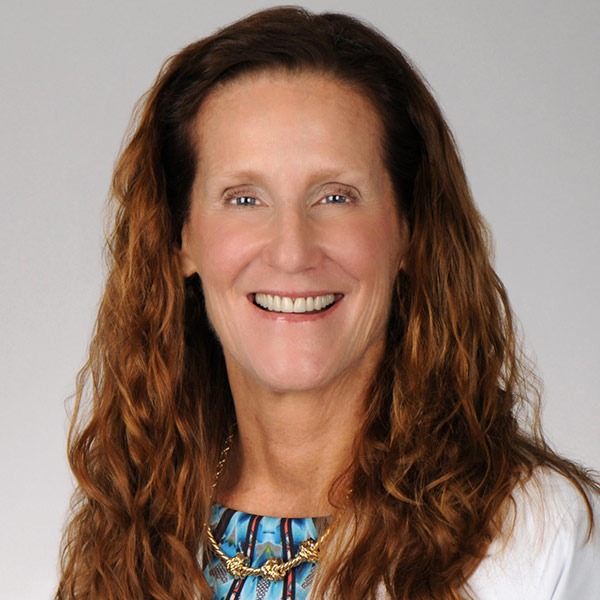
Additionally, she notes that the availability of recorded virtual sessions enables attendees of live meetings to go back and view the sessions they weren't able to attend in person at their convenience or whenever the clinical need arises.
Both Pamela Morris, MD, FACC, and Douglas Drachman, MD, FACC, chair and vice chair of ACC.21, respectively, agree, noting that virtual education can complement live programs by expanding their reach, and enabling ongoing learning. This hybrid live/virtual approach may very well be part of the "new normal" in a post-pandemic world.
"Virtual education really establishes opportunities for lifelong learning, beyond just the set days of a live meeting," says Drachman. "For example, if a clinician has a question about a patient they're seeing in the office or in the hospital, they can go to the on-demand session and search – in a much more precise and refined way now – to view the relevant presentations. Access to the on-demand product can enhance care and patient outcomes, and a clinician can listen anytime and gain nuggets of knowledge and insights for care.
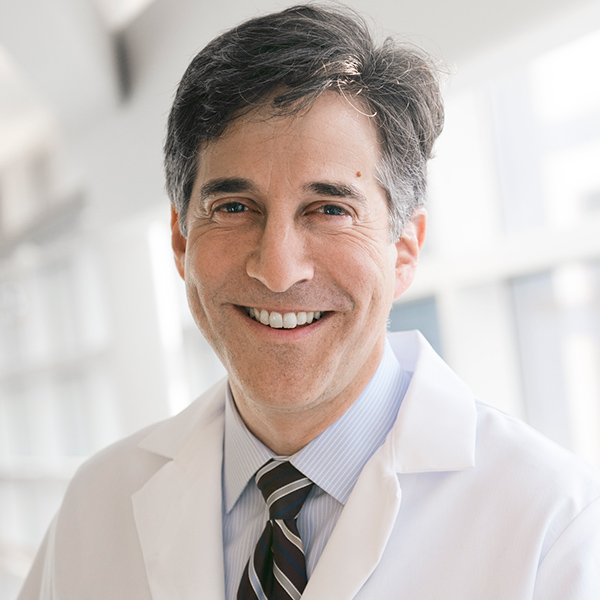
According to Donnellan and Berlacher, augmenting the strategies to deliver education is a key priority of ACC leaders and staff. Members will enjoy enhancements across the virtual education experience, whether registering for a course, obtaining credit, navigating materials or interacting with faculty. Training of faculty for the digital space is also underway, with faculty development programs now incorporating virtual engagement skills, with tactics ranging from best practices for slides, to lighting and background, to navigating the pesky mute button.
"This is an exciting time for education," says Morris. "The ability for ACC to lead the way in making education accessible to every member of the cardiovascular care team is a silver lining to the challenges posed by the past year. It's a privilege to be a part of charting our future."
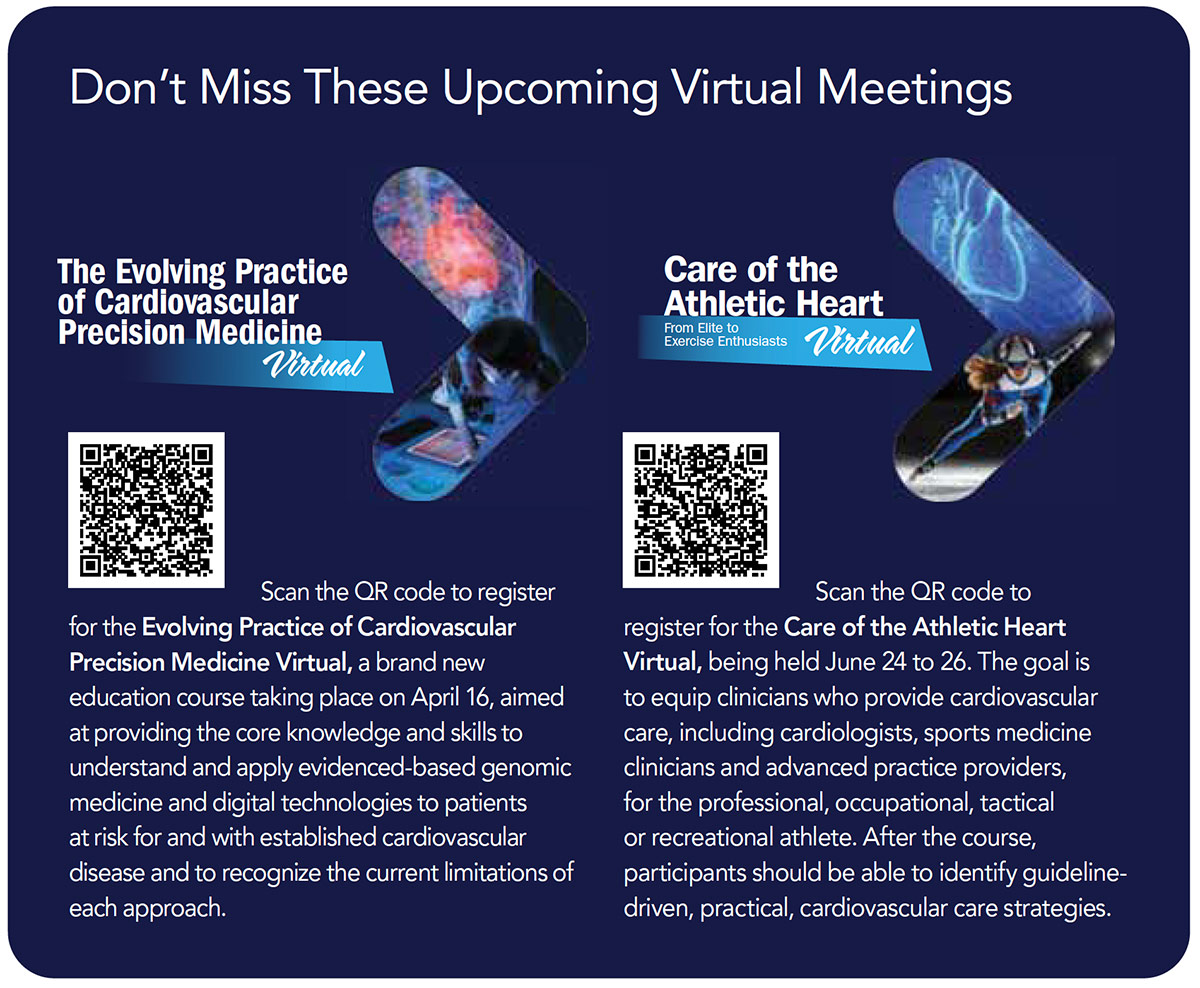
ACC.21: Digital Education At Its Finest
ACC.21 is shaping up to be a best-in-class virtual experience, with an innovative digital platform that harnesses all the lessons learned to take virtual education to the next level. Along with world-class late-breaking science, featured clinical research and 200+ sessions spanning 11 Learning Pathways, the virtual experience is being designed to allow attendees to reconnect and engage with each other.
Register today and starting planning your program for ACC.21 Virtual.
FIT Jeopardy Finalists Ready to Buzz In at ACC.21
The ACC is excited to announce the final state teams that will face off in the sixth annual FIT Jeopardy: Battle of the Chapters competition during ACC.21 Virtual, held May 15 – 17.
These teams of finalists, each comprised of three Fellows in Training (FIT), have won competitions at the State Chapter level – all of which were held virtually over the past two months.
FIT Jeopardy is a friendly competition allowing teams of FITs from state and international chapters to test their clinical knowledge and compete for the title of FIT Jeopardy Champion. The competition promotes a healthy rivalry between ACC Chapters, fosters FIT engagement and provides educational value to both the contestants and the audience. International teams will be announced in the coming months.
"A thrilling aspect of the competition was the visible team spirit, team cooperation and game sportsmanship – all of which are critical nonclinical skills and part of the goals of the FIT Jeopardy competition," says Nkechinyere Ijioma, MBBS, FACC, chair of the Board of Governors Jeopardy Committee.
Stay tuned to ACCScientificSession.org for more information on the specific dates and times of the finals taking place during ACC.21 and don't forget to congratulate the winning teams on social media using #ACC21 and #ACCFIT.
Click here for a list of the teams and finalists.
Just Announced! Late-Breaking Science
Start planning your schedule now to be among the first to hear the latest practice-changing scientific breakthroughs that will be presented during ACC.21. And hear top experts debate and discuss the outcomes of the hottest trials and see how it all fits into your practice.
Late-Breaking Clinical Trial sessions will explore the latest research in the areas of ischemic heart disease, prevention and health promotion, electrophysiology, heart failure and cardiomyopathies, and more. The first session, kicking off Saturday morning, will look at the results from the PARADISE-MI, ADAPTABLE, LAAOS III and Atlantis trials.
Featured Clinical Research sessions will provide unique opportunities to explore new science concerning global heart attack care, COVID-19, and clinician well-being, as well as in-depth secondary analyses from major clinical trials including the ISCHEMIA, TWILIGHT, GALACTIC-HF, EXPLORER-HCM, STRENGTH, TAILOR-PCI, SOLOIST, and SCORED trials.
Clinical Topics: Arrhythmias and Clinical EP, Cardiovascular Care Team, COVID-19 Hub, Sports and Exercise Cardiology, Genetic Arrhythmic Conditions
Keywords: ACC Publications, Cardiology Magazine, COVID-19, Goals, Social Media, Cardiovascular Diseases, Point-of-Care Systems, Consensus, Expert Testimony, Pandemics, Genomics, Education, Continuing, Education, Professional, Faculty, Telemedicine, Delivery of Health Care, Hospitals, Geography, Neoplasms, Electrocardiography, Sports Medicine, Athletes
< Back to Listings


